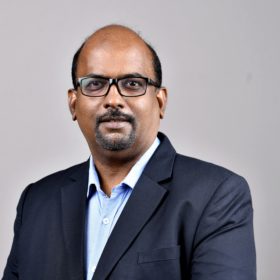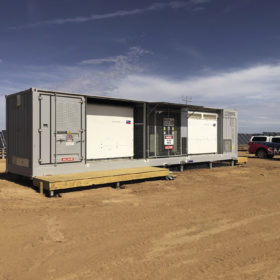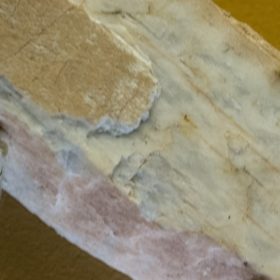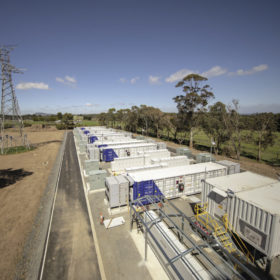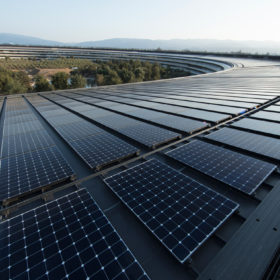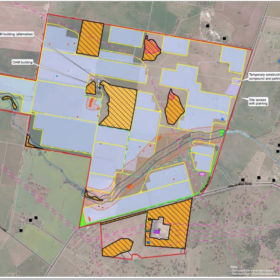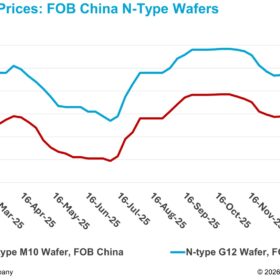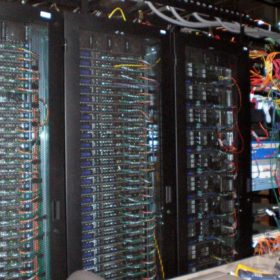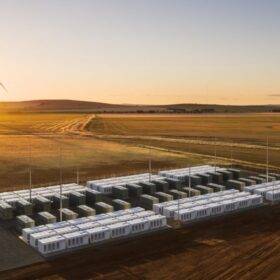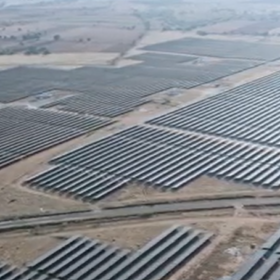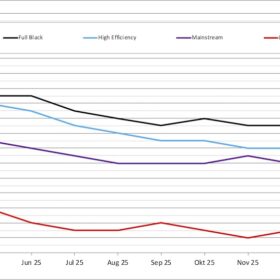Europe will be our next stop – S&W solar interview
Having bagged large orders in the U.S. and Australia, Indian multinational engineering, procurement and construction (EPC) services provider Sterling and Wilson Solar is bidding for tenders in regions which have eased up business lines, Europe among them. Kannan Krishnan, S&W’s chief operations officer for solar in India and the South Asian Association for Regional Cooperation area, speaks to pv magazine about the impact of Covid-19 on the solar EPC business and the company’s expansion plans.
The long read: Collaborative digital fixes for the energy transition
Straddling two state borders, the West Murray region in southeastern Australia has become a microcosm of technical challenges that can plague the energy transition. Faced with serious curtailment of solar farms in this electrically remote region, a remarkable inverter-based technical feat may have changed the game.
Sterling and Wilson Solar bags Rs 2600-crore EPC order in Australia
In its largest order in Australia, the Indian multinational company has bagged Rs 2600-crore (AUD 525 million) EPC work along with Rs 415-crore (AUD 85 million) operations and maintenance job.
Australian miner launches feasibility study on India’s first lithium refinery
Australia based Neometals and India’s Manikaran Power—which announced their collaboration on India’s first lithium refinery last year—have also doubled the proposed refinery capacity to 20,000 tonnes per annum of lithium hydroxide.
UK based Faradion to start sodium-ion battery manufacturing in India
The sodium-ion battery technology developer has bagged its first order from ICM Australia and is looking at India as the next destination for manufacturing with the initial target set as 1 GWh.
Coronavirus could cost Chinese battery makers 26 GWh of output
WoodMac analysts say the amount of new battery manufacturing capacity added in the nation this year could fall by as much as 10% because of the outbreak. With Tesla’s Shanghai gigafactory affected by the extended new-year-holiday shutdown, the analyst warned of potential supply shortages for Australia and the U.S. and U.K.
Corporate clean energy PPAs surge globally, but India sees a drop
Year 2019 saw some 19.5 GW of wind and solar energy contracted by corporations globally through power purchase agreements, up more than 40% from the previous year’s record. The bulk of this purchase occurred in the U.S. with tech companies and oil and gas majors leading the charge. India, however, saw a drop amid rollback of attractive policies, says a new report from BloombergNEF.
“Our LFP battery technology is ideal for the Indian market”: SimpliPhi Power CEO
California-based SimpliPhi Power, which designs and manufactures lithium ferro phosphate (LFP) energy storage systems, has brought off-grid power to everything from the giant moon on Conan O’Brien’s talk show set to U.S. troops in Afghanistan and Iraq, to rooftops for Whole Foods and Airbnb. As the company prepares to enter into India, CEO and President Catherine Von Burg tells pv magazine why their LFP technology is best suited for India and their plans for the country.
Sterling & Wilson begins construction of 200 MW solar project in Australia
Two years after announcing its market entry, the India-based EPC heavyweight has commenced construction of its first Australian project.
Distributed storage market to grow nearly twentyfold by 2028
Market intelligence company Navigant Research has developed a country forecast of the global market. Incentives and pricing will be the main driver of installations, though the market will continue to be concentrated in certain key regions, including India, for now.
